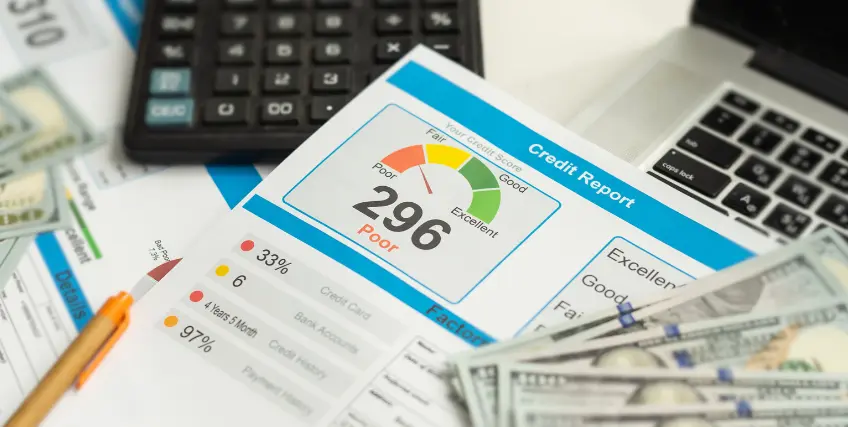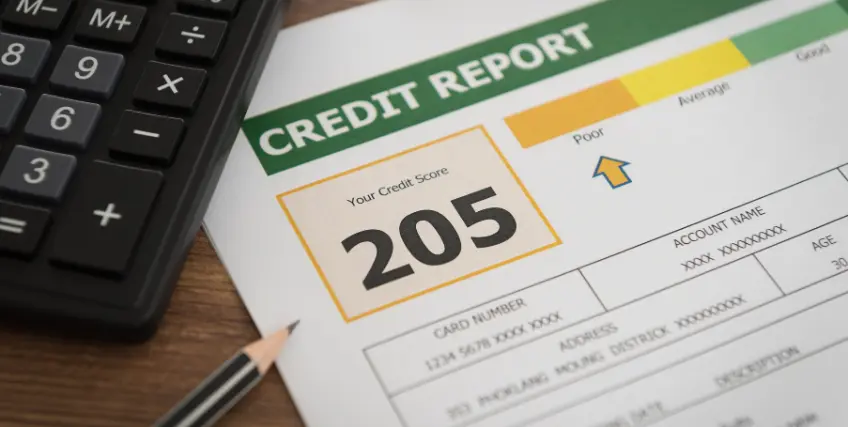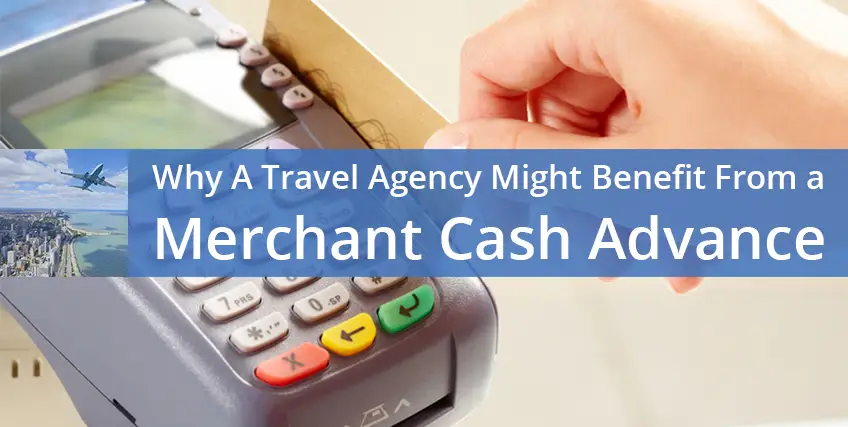What’s the Difference Between an Interest Rate and a Factor Rate?
December 17, 2024 | Last Updated on: December 17, 2024

Every time you apply for financing money, there’s an associated interest rate or factor rate. Though these numbers will look wildly different, at their most basic level, factor rates and interest rates both signify how much you’re going to owe in order to borrow money. There are distinctions for typical business loan interest rates that are important for managing your business. The best way to understand what makes these rate signifiers different is to understand them individually. Let’s break down what makes factor rates and interest rates different and why every business owner should care.
What are Factor Rates?
Factor rates are most commonly used for acquiring short-term financing like a merchant cash advance, also known as a business cash advance. In a merchant cash advance, a financial institution gives a business money up-front which is repaid automatically by deducting a certain amount of money from the business’s future sales, like incoming credit or debit card payments, until the advance is repaid.
The factor rate establishes how much will need to be repaid. Expressed as a decimal, usually somewhere between 1.1 and 1.5, a factor rate is multiplied by the principal amount, which results in the total repayment amount. If you receive a merchant cash advance of $12,000 with a factor rate of 1.25, you’ll repay $15,000 – a total of $3,000 more than you borrowed.
Cash advances may be able to approved quickly since they’re specifically designed to help businesses cover short-term needs. They can also be given to borrowers with poor credit and the funds can be used for almost any kind of business purpose. For those reasons, advances with factor rates are favored by business owners who want to get things done quickly and efficiently to help their companies grow. If an emergency or crisis pops up, it’s good to know that there are options you can turn to where you’ll be able to get money as fast as merchant cash advance providers do.
What are Interest Rates?
Interest rates are the most common way of signifying how much a borrower will pay to borrow money. Most loans are priced through interest rates, both for commercial and personal purposes. Interest rates on loans are all over the map and get incredibly complicated. However, the most common method involves charging interest based on a set percentage of the remaining principal at defined, regular intervals.
If you borrow the same $12,000 as you did above, the lender charges 6% interest to be compounded monthly. At the end of the first month, your new balance will be $12,720. If, in the next month, you make a $2,000 payment, your balance will be $10,720. And the next interest calculation will be based on that new balance. Many types of small business loans include an interest rate.
Small Business Administration (SBA) loans, commercial real estate loans, equipment loans, business lines of credit, and business credit cards can all carry an interest rate. Since loans with interest rates tend to require repayment over a defined term, calculating your business loan repayments is often a good idea before agreeing to the loan terms. Depending on the term of your loan, you could find that your monthly payments will be smaller or larger than other financing options.
What’s The Difference Between Factor Rate and Interest Rate?
The total repayment amount for financing with a factor rate is calculated in advance based on the original funding amount. Meanwhile, the total repayment amount for loans with interest rates will change depending on how quickly repayment is made. The total cost of the loan calculated at the beginning (factor rate) versus the end (interest rate) can result in a large difference.
Factor Rate Loan Pros
- The principal and the factor rate are both known from the start of financing and the values will not change. This may make it easier for businesses to set regular payments.
- Financing that comes with factor rates is often faster to access than that which comes with an interest rate.
Factor Rate Loan Cons
- Factor rates may have a higher base when compared to interest rates.
- There are no incentives built in for early payment of financing. To decrease the total cost of financing through early payment a merchant would need to contact their financier and make a request.
- Financing with factor rates often offers less time for the recipient to pay back the funds.
Interest Rate Loan Pros
- Interest rates may have a lower base when compared to factor rates.
- Low interest rate loans may provide more time, or a longer term, to repay the loan.
- Early payment is rewarded with decreased loan duration and therefore less money paid on interest.
Interest Rate Loan Cons
- Interest rates require a better credit approval rating.
- Interest rate loans may cost more in the long run due to having a longer payback period.
- Approval for interest rate loans takes longer, so financing won’t happen as quickly as a factor rate loan.
If $12,000 of financing is subject to an additional $3,000 in factor rate expenses, you know the total cost of financing is $15,000. However, for an interest rate bearing loan, if you find yourself unable to meet the schedule of monthly payments that have been predetermined, the interest charges that have already been racked up will be included in the next charge.
Which Loan Rates are Better for Small Businesses?
The greatest factors in determining which interest rates on loans are best for your small business are creditworthiness and time, or how soon your business needs funding. Financing with factor rates, using products like a merchant cash advance, will benefit those who need money faster or who have a less favorable credit history. This type of financing also has the benefit of being more predictable than loans, as the total amount owed is set as soon as the financing is originated.
Factor rate financing may be a fit for your business if:
- You need fast funding.
- You like the idea of making steady, static payments.
- You prefer to pay down the funding debt faster.
- Your business is young but has a steady flow of revenue.
- Your business has a fair or poor credit rating.
- Your business has collateral to make funding more affordable.
In contrast, interest rate loans can be strong options for businesses that have a little more time before they need the funds or have a more beneficial credit history.
Interest rate loan may be a fit for your business if:
- You prefer a longer repayment period and lower payment amounts.
- You like the incentive of decreased interest owed for early payment.
- You have been in business for two or more years.
- Your business shows healthy annual revenue.
- Your business has a good or excellent credit rating.
- You believe you will make payments on time, if not early.
Considerations for loan rates
No matter how you borrow money, you’ll have to pay for it. Paying a factor rate versus paying an interest rate is often no more than an indicator of the type of loan you’ve chosen and been approved for. Loans with interest rates usually take longer to get approved. The application process is typically more complicated and will require a higher level of financial and business scrutiny than financing that comes with factor rates.
Work with a trusted financing partner to help you gather all the required paperwork and process your loan application as quickly as possible. There are also lots of situations where a cash advance or factor rate product is your best option. This financing isn’t just for those times when a vital, expensive piece of equipment breaks just before your busiest season begins. In the case of a cash advance, factor rate funding repayment is done in one of two ways: as a percentage of card sales over a given time, or in regular payments of an agreed-upon size. Payment by percentage can be a real advantage for business owners. If you have a down week, you won’t have to pay as much.
Whereas with an interest rate on a loan, if you have a down week you can run into financial issues which may require more loans – and send your business into a costly debt cycle. When properly understood, choosing a factor-rate product is actually a great way to stay in control of your funding costs. To see if your business may qualify for either factor-rate products or interest rate term loans, get started with Biz2credit.
FAQs about Interest Rates and Factor Rates
Does an interest rate or factor rate offer the lowest interest loan?
It's typical for an interest rate to offer the lowest interest loan rate. Interest rates usually last longer, so the interest rate spans over a longer period of time. Keep in mind that it will depend on each individual’s situation, and rates will vary.
Are both interest rate and factor rate loans secure?
A: Yes, both interest rate and factor rate loans can be secure. Of the two, interest rate loans tend to be more secure because the requirements are more stringent in the borrowing process.
What is a typical business loan interest rate?
Business loans rates vary greatly due to a number of variables. The Federal Reserve’s federal rate fund, credit score, borrowing amount, payment plans, and types of loans can all impact rates.
What kind of credit score do you need for a business interest rate loan?
Some financial institutions online will accept a credit score of 500. However, most traditional banks require a credit score of 680 or higher for typical business loan interest rates.
Do all financial institutions offer both factor rate and interest rate loans?
No, not all financial institutions offer both factor rate and interest rate loans. Interest rate loans are considered the more traditional route for financial institutions, whereas factor loans have more lenient credit measures.
Frequent searches leading to this page
loan rates, low interest rate loans, lowest interest loans, typical business loan interest rate, interest rates on loans
Recent Articles
Related Articles

Can You Renegotiate Terms on MCA Cash Financing After a Default? What Business Owners Need to Know
November 27, 2024

Business Loan or Merchant Loan? Understanding Loan Options for Your Business
November 25, 2024

Avoiding the Debt Trap: How Stacking MCA Business Financing Can Hurt Your Business Credit
November 7, 2024

Why MCA Business Funding May Be Ideal for Retailers Looking to Expand Inventory
November 5, 2024

Merchant Cash Advance vs. Asset-Based Lending: Which is Right for Your Business?
January 10, 2025

Merchant Cash Advance vs. Traditional Business Loans: Which is Right for Your Business?
January 10, 2025

Merchant Cash Advance vs. Line of Credit: Which is Right for Your Business?
January 9, 2025

5 Things Every Small Business Owner Wishes They Had Known When They Started
January 9, 2025

































